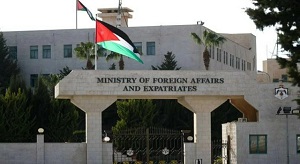Are Europe’s Syrians Still Refugees? - By Anchal Vohra, Foreign Policy
Through treacherous sea routes, after months or even years in cramped refugee camps, and after paying hefty sums to smugglers, more than a million Syrians arrived in Western Europe at the peak of the Syrian conflict. Ten years into the Syrian war, while active fighting has largely subsided, most Syrian refugees still don’t find it safe to return to their country. The oppressive government they fled in the first place is still in power, and most refugees fear they might be persecuted upon return for participating in protests, supporting the rebels, deserting mandatory military service, or simply for a bribe.
Over the years, many have also worked hard to integrate into their host countries. They have learned the local language, found jobs, and paid for themselves rather than being entirely dependent on state largesse. They have finally built a life in the kind of democratic nations they wanted Syria to be and cannot imagine leaving it all behind. Western European countries have provided some form of protection to most who arrived and, even though there are murmurs of gradual deportations, activists say legal protections stop the governments from doing so and from succumbing to pressure in this direction from the far right.
Trending Articles
Top News from Foreign Policy
Powered By Trackerdslogo
With Syria still under the Baath Party’s rule, it seems to be generally accepted in Europe that Syrians will not be returning home. Their continued presence and contribution to local economies, however, have led to a discussion over whether they should still be considered refugees or rather members of their respective European societies on par with other residents. Activists argue there is a need to speed up the process of granting them citizenship to put an end to their uncertain futures.
They say while the term refugee can be used pejoratively and perhaps isolates the whole community, it is a necessary legal category only to protect Syrians from deportation. But most Syrian refugees are hoping to assimilate as citizens into their host countries, and some have already joined electoral politics. It has been a decade since the Syrian uprising began in search of democracy, respect for human rights, and a decent life. Those uprooted are now chasing a political voice inside Europe.
According to a report by DIW Berlin, part of the German Institute for Economic Research, which advises various stakeholders on policy, half of the refugees in Germany who wanted a job in 2016 were employed by 2018. An overwhelming number of these refugees were Syrians. The report added that most refugee children have been integrated into schools and will become the future workforce of an aging Germany. Katharina Spiess, professor of family and education economics at the Freie Universität Berlin and a researcher at DIW Berlin who often advises policymakers on refugee issues, said that Syrians have integrated well into the German economy overall, but there is still room to integrate them better.
“Just five years ago our chancellor said ‘Wir schaffen das’ or ‘we can handle this,’” Spiess said. “That is not a long time to integrate everyone. And yet considering these people could not even speak German when they arrived, I would say Syrians are very well-integrated.”
She said the terminology surrounding Syrians in Germany should be carefully applied. “Refugees should not be addressed as refugees per se; they should be addressed, like we Germans, in the role they are playing in the society,” she said. “Such as—an employee, a parent, an unemployed person, and so on. They should be referred to as a refugee only when their refugee background is important. For instance, they are unemployed because they don’t speak German because they are a refugee. In the latter case, it helps them and the state to address a problem to integrate them better.”
Under the 1951 Refugee Convention, a refugee is defined as a person who faces persecution on return for reasons including “political opinion.” Analysts say that while Syrians who were actively involved in opposing the regime face an imminent threat of persecution, others face it more generally. But since the Syrian government is notorious for randomly arresting returnees too, no Syrian can be deported in good faith. Moreover, Europe has refused to resume ties with Bashar al-Assad’s government, accused of committing crimes against humanity, and without intergovernmental cooperation cannot procure guarantees of the safety of returnees.
According to the guidelines by the United Nations High Commissioner for Refugees, the UN’s refugee agency, refugees must not be deported or forced to return unless a durable solution to their situation has been found. In other words, the alternatives for policymakers are voluntary return when refugees feel it is safe, resettlement in a third country, or when local integration is considered final once a refugee has been granted citizenship.
Although the protection granted by refugee status remains essential, the term itself is isolating Syrians into a bloc that the far right finds easier to attack. Many Syrians, too, hope to be acknowledged for their contributions rather than subsumed under a tag that is often used in a derogatory manner.
Latest News
-
 Jordan takes part in operation targeting Daesh locations
Jordan takes part in operation targeting Daesh locations
-
 Prime minister inspects infrastructure work at Amra City project
Prime minister inspects infrastructure work at Amra City project
-
 Syria monitor says US strikes killed at least five Daesh members
Syria monitor says US strikes killed at least five Daesh members
-
 Jordan welcomes lifting of US sanctions on Syria
Jordan welcomes lifting of US sanctions on Syria
-
 King hails Nashama achievement, Jordanians’ unity, resilience
King hails Nashama achievement, Jordanians’ unity, resilience